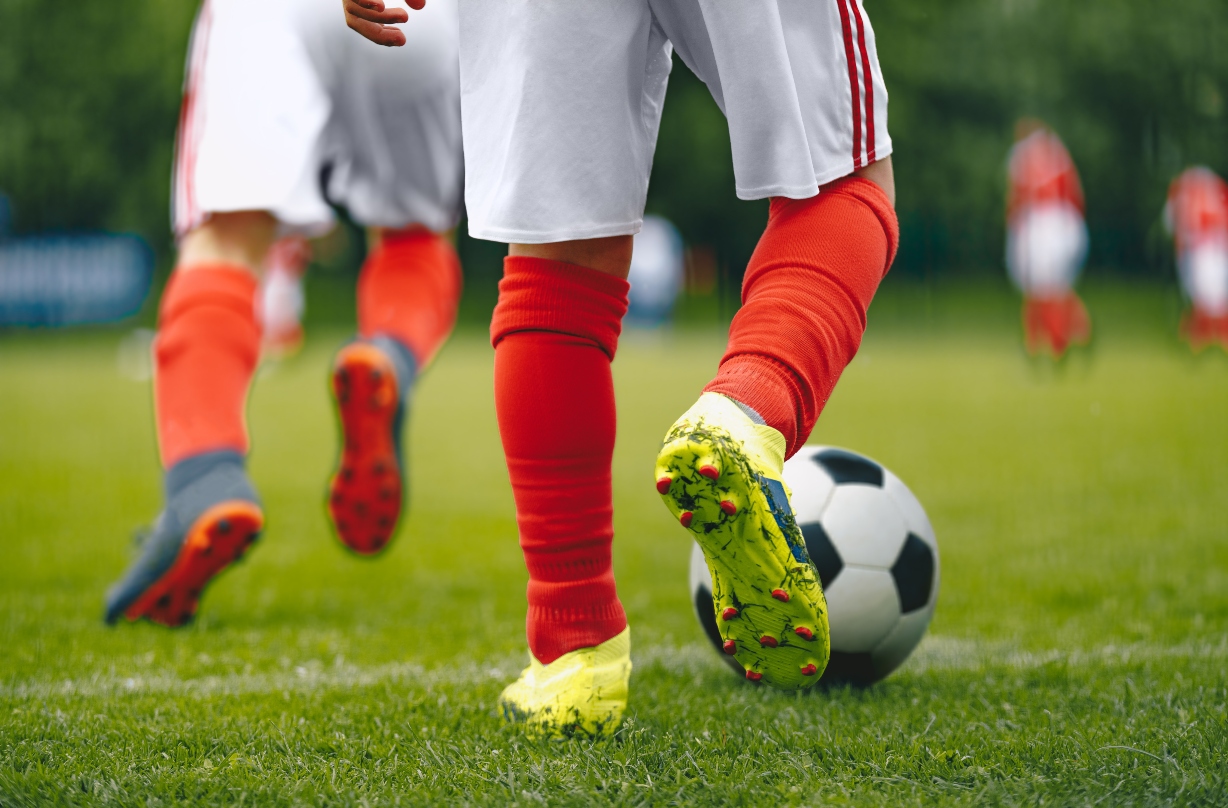Children under 12 banned from heading footballs as under 18s are ‘in danger’ of brain injury


It's been announced that children under the age of 12 have been banned from heading footballs during practise or training sessions.
The rules, which will apply to kids in England, Scotland and Northern Ireland - but not Wales - only applies during training, with under 12s still allowed to head balls during matches.
It comes following widespread calls last year for heading in children's football to be banned.
Back in October, Neuropathologist Dr Bennett Omalu called for an immediate ban on heading footballs for children below the age of 18, over fears they could cause brain damage. He also urged football bosses to respond to its dementia crisis, by introducing a ban on headers in children.
Speaking to The Telegraph at the time, Dr Omalu said, “There should not be any heading of the ball below the age of 18. Why 18? Because that is when the human brain becomes fully developed. It is not intelligent for a human being to use his head to stop or deflect a ball travelling at a high velocity. As a society we should evolve.”
Former England player Ryan Mason also advocated for the ban, after fracturing his skill during a professional game.
And several other footballers have expressed their fears over the health repercussions of heading heavy footballs. In 2017, Alan Shearer revealed he is concerned about the risk of dementia from heading balls, admitting, "It is definitely something that bothers me, that I might not have a future because of football."
GoodtoKnow Newsletter
Parenting advice, hot topics, best buys and family finance tips delivered straight to your inbox.
In fact, former footballers including Jeff Astle and Nobby Stiles developed dementia in later life, with their families believing that their heading in football was a direct cause.
What does the football industry think about banning heading in the sport?
Currently, The Football Association (FA) doesn’t believe there’s sufficient evidence to completely remove heading from children’s football.
However, the Scottish FA doctor John MacLean has said that he believes limiting kids head contact with the ball is sensible.
https://www.youtube.com/watch?v=07EQXPcTX4k
He explained, "We need to take some sensible, pragmatic steps at the moment and that's largely going to be about trying to reduce that overall burden, the overall times that young players head - and heading in training is much more common than in matches,"
What do the experts say about the health risks of heading in football?
Heading for children is currently banned in the US, and a new study has even launched into women footballers, as they are generally at greater risk of concussion.
But a huge part of the health risks of heading has centred around its links to dementia.
A study by Glasgow University also found that ex- footballers were three and a half times more likely to die of dementia.
It's been proven that when a heavy ball - such as a football - hits the head, the brain bounces against the wall of the skull, which can cause bruising.
And in 2018, a study conducted by the University of British Columbia found that the levels of proteins in the blood associated with nerve damage increased after having headed a ball.
It's appears to have been proven with another study too. In 2017, University College London published a study based on post-mortem examinations of six former football players - which demonstrated changes in their brains associated with repeated brain injury. They said that there is some evidence to suggest that this could cause dementia later in life.

Lucy Buglass is a Digital Writer for What's on TV, Goodto.com, and Woman&Home. After finishing her degree in Film Studies at Oxford Brookes University she moved to London to begin her career. She's passionate about entertainment and spends most of her free time watching Netflix series, BBC dramas, or going to the cinema to catch the latest film releases.